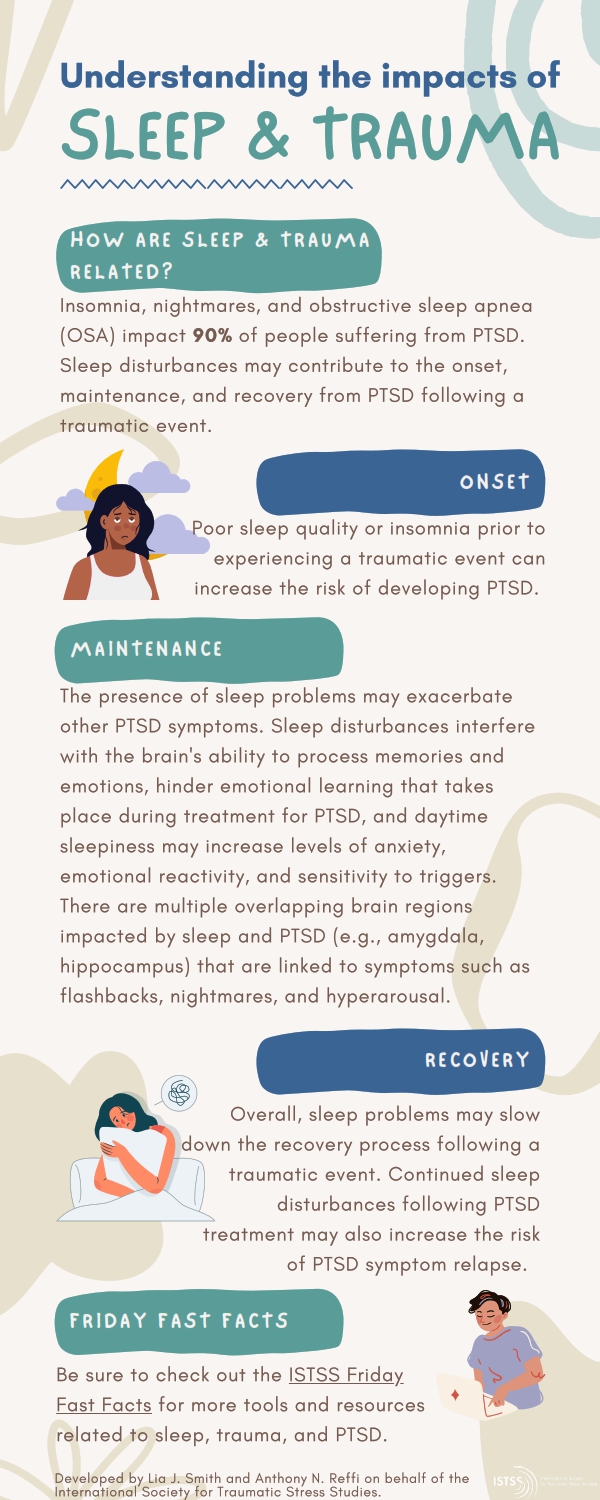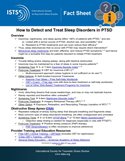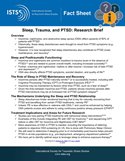Sleep, Trauma, and PTSD
Sleep has far-reaching effects that can extend beyond PTSD. While sleep is related to risk for PTSD, it can also be involved in depression, substance use, and suicidal behavior following trauma. Sleep is transdiagnostic -- it has a hand in the many ways we react to traumatic experiences. Join Anthony N. Reffi, PhD, as he introduces June's Friday Fast Fact series, and watch for new materials every Friday in June 2022.
Facebook | Twitter | Join | Donate
Understanding the Impacts of Sleep and Trauma
Learn some quick facts about sleep and trauma in this infographic developed by Lia J. Smith and Anthony N. Reffi for ISTSS.
Download as a PDF

Fact Sheet: How to Detect and Treat Sleep Disorders in PTSD
 Sleep disturbances that co-occur with PTSD may require direct intervention. Behavioral sleep treatments might be a first step for patients reluctant to initiate PTSD treatment. This fact sheet reviews insomnia, nightmares, obstructive sleep apnea, and provides links for additional training or resources.
Sleep disturbances that co-occur with PTSD may require direct intervention. Behavioral sleep treatments might be a first step for patients reluctant to initiate PTSD treatment. This fact sheet reviews insomnia, nightmares, obstructive sleep apnea, and provides links for additional training or resources.
VIEW THIS FACT SHEET
Research Brief: Sleep, Trauma, and PTSD
 It is now recognized that sleep disturbances also contribute to PTSD onset, maintenance, and recovery. In this research brief, read through curated articles addressing sleep and posttraumatic functioning, the role of sleep in PTSD maintenance and recovery, mechanisms underlying the sleep and PTSD relationship, treatment implications, and areas for future research.
It is now recognized that sleep disturbances also contribute to PTSD onset, maintenance, and recovery. In this research brief, read through curated articles addressing sleep and posttraumatic functioning, the role of sleep in PTSD maintenance and recovery, mechanisms underlying the sleep and PTSD relationship, treatment implications, and areas for future research.
VIEW THIS RESEARCH BRIEF
What are Friday Fast Facts?